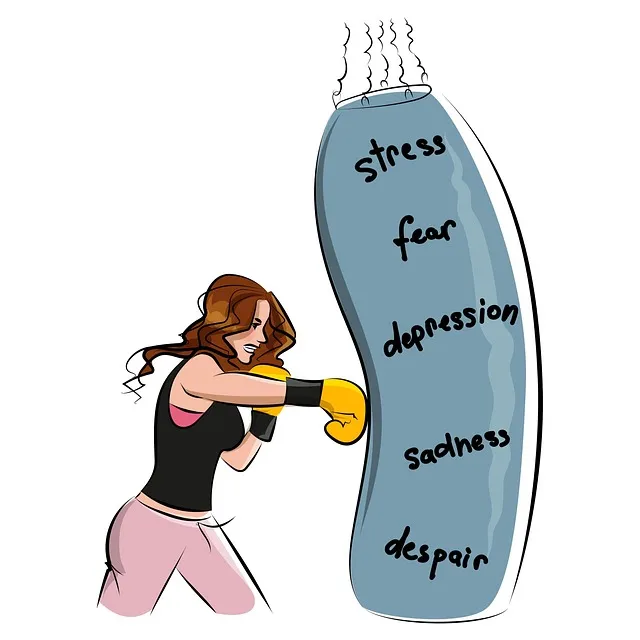Media portrayal significantly shapes public perception of mental health, with positive representations encouraging help-seeking and negative portrayals reinforcing stigma. Kaiser Permanente mental health center reviews Denver highlight the power of accurate media representation in fostering empathy and understanding, crucial for early intervention. The need for diverse, authentic narratives in media is emphasized to combat stereotypes, improve public understanding, and direct individuals towards support systems.
Mental illness representation in media significantly influences public perception and understanding of mental health. This article delves into the impact of media portrayal, drawing insights from Kaiser Permanente’s research in Denver. We explore challenges such as inaccurate stereotypes and barriers to authentic representation. Furthermore, we propose strategies for positive change, offering solutions to enhance how mental illness is depicted in media, based on best practices identified by healthcare professionals at Kaiser Permanente mental health centers in Denver.
- Understanding the Impact of Media Portrayal on Mental Health Perception: A Review of Kaiser Permanente's Insights from Denver
- Challenges and Barriers: Exploring Inaccurate Representations in Popular Culture
- Strategies for Positive Change: Solutions to Enhance Mental Illness Portrayal in Media
Understanding the Impact of Media Portrayal on Mental Health Perception: A Review of Kaiser Permanente's Insights from Denver

Media portrayal plays a significant role in shaping public perception about mental health issues, impacting how individuals understand and respond to them. A review of insights from Kaiser Permanente’s mental health center in Denver offers valuable perspective. This study reveals that positive media representation can significantly boost confidence among individuals facing mental health challenges, encouraging them to seek help and support. Conversely, negative or stereotypical portrayals can hinder progress in coping skills development and emotional healing processes, reinforcing societal stigma associated with mental illness.
By examining various media narratives, Kaiser Permanente’s research underscores the power of accurate representation in fostering empathy and understanding. This is particularly crucial for promoting early intervention and better outcomes among individuals struggling with their mental health. The findings highlight a pressing need for responsible media coverage that reflects the diversity of experiences within the mental health community, ultimately contributing to a more supportive and inclusive society.
Challenges and Barriers: Exploring Inaccurate Representations in Popular Culture

The media plays a significant role in shaping societal perceptions about mental health, often influencing how individuals with psychiatric conditions are viewed and treated. However, challenges and barriers persist in accurately representing mental illness in popular culture. Despite efforts from advocacy groups and mental health organizations like Kaiser Permanente mental health center reviews Denver, misleading portrayals remain prevalent.
Many media outlets perpetuate stereotypes by depicting mental illnesses as either overly dramatic or completely invisible. For instance, conditions like depression and anxiety are sometimes sensationalized, while others, such as schizophrenia, are portrayed as inherently dangerous and unpredictable. Such inaccurate representations hinder understanding and foster stigma, creating obstacles for those seeking support. This is further complicated by the lack of diverse voices in media production, which can lead to a one-dimensional view of mental health experiences. To address these challenges, risk management planning for mental health professionals should emphasize the importance of accurate representation, encouraging the integration of social skills training and self-esteem improvement initiatives to foster more nuanced storytelling.
Strategies for Positive Change: Solutions to Enhance Mental Illness Portrayal in Media

The media plays a significant role in shaping societal perceptions about mental health, making accurate and compassionate representations crucial. To foster positive change, several strategies can be employed. Firstly, encouraging diverse narratives featuring individuals from various backgrounds battling mental illness can help reduce stereotypes. This includes showcasing recovery stories, emphasizing resilience, and displaying the range of experiences—from mild to severe—to educate audiences.
Secondly, organizations like Kaiser Permanente mental health centers in Denver can collaborate with media outlets to ensure factual and sensitive reporting. By providing resources and guidance on mental wellness coaching programs and stress management workshops, these institutions can contribute to developing more realistic portrayals. This partnership approach not only enhances public understanding but also promotes services that address burnout prevention, ultimately benefitting those seeking support through reliable media representations.
Media portrayal of mental illness plays a significant role in shaping public understanding and perceptions. By examining Kaiser Permanente’s insights from Denver, it is evident that challenging negative stereotypes and inaccurate representations in popular culture is crucial. Through collaborative efforts between media outlets, mental health professionals, and advocacy groups, we can implement strategies to enhance and promote positive portrayals. This includes increasing accessibility of diverse stories, educating content creators, and fostering an environment that supports accurate representation. By doing so, we not only improve the way mental illness is perceived but also encourage support systems and resources for those facing similar challenges, ultimately benefiting communities across the nation, including the Denver-based Kaiser Permanente mental health center.






